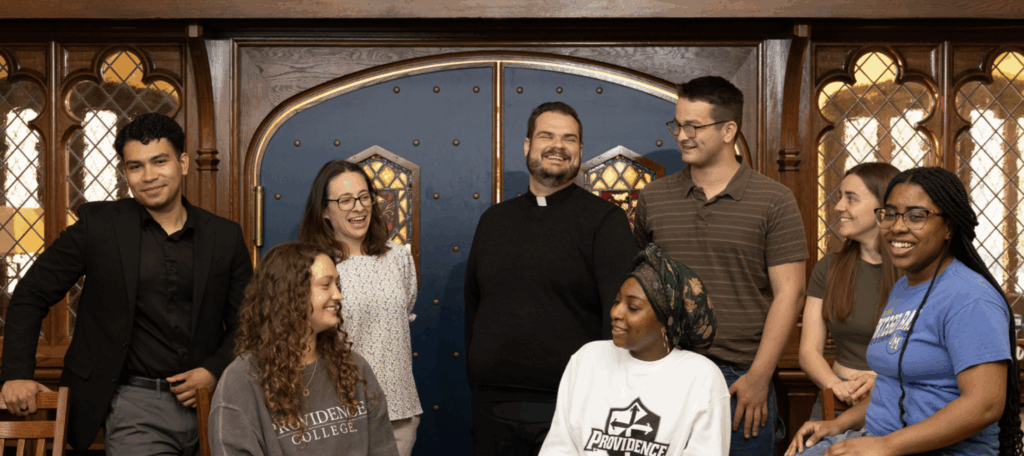About the CCDS
About the CCDS
What do you seek? We seek more.
The Center for Catholic & Dominican Studies is committed to sharing the fruits of contemplation in the context of an increasingly complex, global, and post-Christian society that yearns for meaning and answers to the most fundamental questions about the human person: Who are we? Where do we come from? Where are we heading? It does this in pursuit of Veritas, truth, and by engaging both new and perennial sources that can offer fresh perspectives on contemporary issues in a spirit of dialogue and mutual respect with a view to enhancing teaching and learning. Following in the footsteps of notable Dominicans such as Aquinas, Vitoria, Las Casas, and Lacordaire, among others, the Center seeks to integrate the humanistic insights of theology and philosophy with political, social, and economic thought.
We believe that the most pressing questions of contemporary society require a compelling articulation of human personhood. Our modern world prioritizes the individual and necessitates that the “self” craft its own order, meaning, and purpose to life. The advantage of such an approach lies in its recognition, whether articulated or not, of the inexhaustible mystery and dignity of the human person. Such an approach also creates problems of identity and authenticity. These problems are evidenced by social media that fractures genuine relationships and a mental health epidemic characterized by self-conscious anxiety and loneliness. Emergent technologies threaten our traditional understanding of work and the dignity of the human person. In the context of United States politics, these concerns have come to the fore of our national consciousness in the form of identity politics. Many of these movements seek recognition and meaning for their adherents in the face of our failed civil and religious institutions. At the Center, we take all such concerns seriously.
In the face of these new challenges, contemporary people generate a world of meaning, each for themselves. Often, the product of these efforts is completely immanent and positively excludes God. As Pope Leo XIV stated in his first homily, “A lack of faith is often tragically accompanied by the loss of meaning in life, the neglect of mercy, appalling violations of human dignity, the crisis of the family, and so many other wounds that afflict our society.” Our strategy is to show the inadequacy of a purely immanent approach to finding meaning and purpose and to propose the necessity for a transcendent dimension to human life. The Center’s approach seeks to provide a counterpoint by emphasizing the natural human desire for the transcendent God without whom human life is always left wanting. Yet, while we reject an overly immanent view of the human self, we reject also an overly transcendent view of Jesus Christ who deigns to take flesh through the Incarnation and walks among us.
Some, but certainly not all, special concerns of the Center are: the architecture of desire and its place in the rational soul, the concept of authenticity and its role in human moral development, and the tensions between individual autonomy and the communal nature of the human person.

Fr. Christopher Justin Brophy, O.P.
Director, Center for Catholic and Dominican Studies
Assistant Professor of Political Science
Howley Hall 310
401-865-1634
justin.brophy@providence.edu
Dr. Mary Harmon-Vukic
Senior Fellow
Associate Professor of Psychology
Sowa 0121
401-865-2612
mharmon@providence.edu





